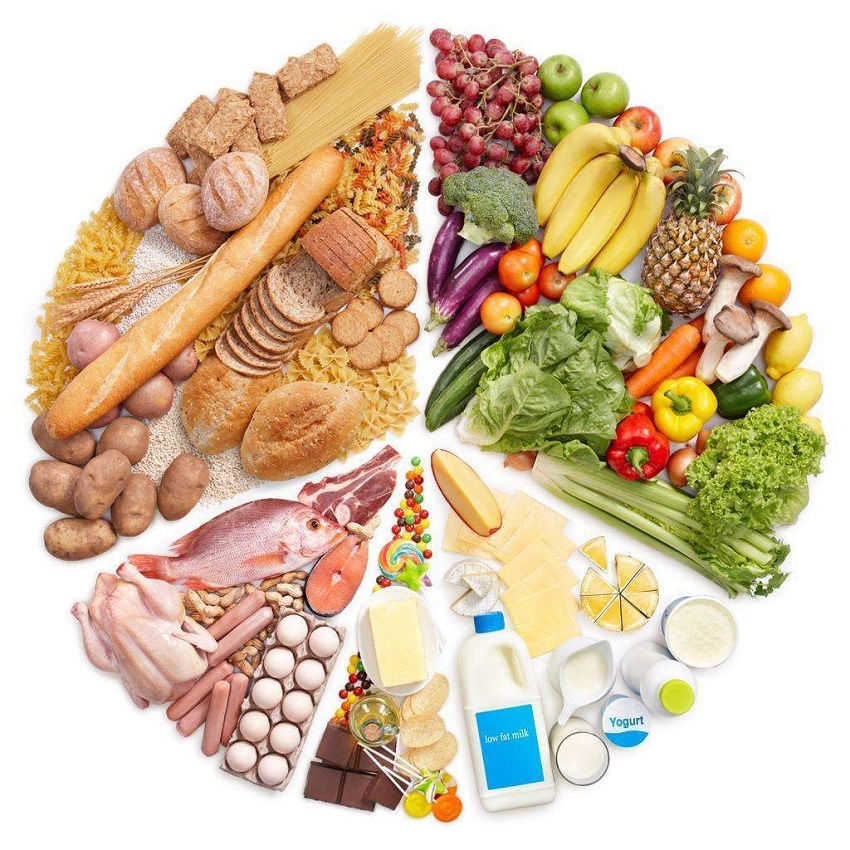Your meal takes time to break down in your body. Did you know that there are different digestion times for different foods?
Food digests at different times, depending on what you eat. Apart from exploring how long it takes to digest different types of food, we will explain the stages of the digestion process and will discuss the implications it has for your diet and health.
What Are the 6 Stages of Digestion and How Long Does It Take to Digest Food at Each?
To learn how long it takes to digest food, you must know about the stages of digestion.
Digestion is the process by which the body retrieves nutrients from the food you eat. Your gastrointestinal tract begins at your mouth and ends at your anus. The large and small intestine break down the food you eat. Organs outside it, such as salivary glands, assist in the process too.
Digestion has six stages. How long does food take to digest at each?
1. Chewing
The first stage of digestion is Mastication or the chewing of food. Your teeth and saliva begin to break it down. Alpha-Amylase, an enzyme in saliva, breaks food down into a soft mass called a Bolus. It also makes the Bolus slippery so that it can move from the tongue through a tube called the esophagus.
2. Swallowing
The Bolus then passes through the Esophagus, which typically takes 1-3 seconds. The bolus then slips through the Esophageal Sphincter before entering the stomach in 5-8 seconds.
3. Stomach digestion
The stomach then releases hydrochloric acid, which breaks the Bolus down further into a liquefied substance called Chyme. Digesting food in this phase typically takes from 2 to 4 hours.
4. Small intestine digestion
The Chyme then passes through the Pyloric Sphincter into the Duodenum or the first part of the small intestine. The liver, gallbladder, and Pancreas secrete enzymes that break the Chyme further into nutrients that are ready for absorption. How long does digestion take at this stage? It usually takes from 3 to 5 hours.
5. Absorption
The small intestine has a lining of finger-like projections known as Villi. The Villi enable the nutrients, such as proteins and carbohydrates, to pass into the bloodstream.
Food remains move through the different parts of the large intestine, and the transit time isfrom 4 to 72 hours, with an average of 36 hours.
6. Waste Elimination
The waste products that the body doesn’t absorb move to the large intestine through the Ileocecal valve. These include dietary fiber. They collect in the rectum until the brain gives the signal to pass them out as waste, resulting in bowel movements.
How long does it take to digest different food types?

All the food we eat consists of the same group of macronutrients – carbohydrates, fats, and proteins. Each is an essential fuel for the body. Note that some foods will take longer to digest than others. This information has implications for health and diet. So how long does food take to digest?
1. Carbohydrates
These digest quickly, but the speed varies depending on the type of carbohydrates consumed. Carbohydrates consist of sugars and molecules of carbon, oxygen, and hydrogen. Glucose molecules are the tiniest of these; the body can use them as fuel at once.
Starches are essentially large glucose molecules, which the body can break down quickly.
Of course, not all carbs digest at the same rate. The more refined the carbohydrate is, the faster it breaks down. Carbohydrates with high amounts of dietary fiber take a longer time to digest.
It slows the conversion of starch into glucose, therefore moderating the increase in blood sugar and helping you stay full. According to the Cleveland Clinic, it also helps to relieve constipation. We need about 25 to 35 grams of fiber a day.
Compare the digestion times of high-starch and high-fiber foods. Corn, potatoes, yams, and sweet potatoes take just an hour to digest. Whole grains like brown rice, millet, maize, and oats take 1.5 hours to break down.
2. Proteins
Proteins are complex molecules that don’t break down as fast as carbohydrates. Converting them into their component amino acids takes a long time; therefore, they are a valuable source of fuel, particularly after exercise.
3. Fats
Triglycerides, the natural fats in your body, consist of glycerol. These take a long time to break down, so the body uses them as energy stores. That’s why they tend to accumulate in the body.
Consider how long cheeses take to break down. Hard cheeses take 4 to 5 hours to digest. Skimmed cheeses take about 1.5 hours to move through the digestive tract.
Harvard University does battle with belly fat. Researchers have discovered its tendency to produce cholesterol and its connection to heart diseases.
4. Fruits and Vegetables
Fruits and vegetables take an incredibly short time to pass through the digestive tract. Salads and green leafy vegetables take only 40 minutes to digest. Broccoli, cauliflower, and string beans take 45 minutes to break down, while Root vegetables like carrots and radish digest after 50 minutes.
Implications for Health and Diet
A proper diet is essential, whether you wish to lose weight or maintain gut health. Knowing how long it takes to digest food is important because digestion times govern what we eat.
1. Don’t Abandon Carbohydrates
Carbohydrates tend to move through the gastrointestinal tract quickly. You will have more episodes of hunger if you eat them alone. Don’t discount them, however, as they are an indispensable source of energy, particularly for the brain. Eat healthy portions with lean meats and vegetables throughout the day.
2. Eat Fiber
Take in more fiber if you intend to lose weight. You will have less tendency to snack in between meals. Rely on grains, fruits, and vegetables, as these digest fast and don’t stay in the body. Eating both types of fiber is essential.
Insoluble fiber, or roughage, comes from fruits and vegetables. It will add bulk to your stool. Soluble fiber, like whole grains, draws in water and prevents runny stool.
3. Eat Lean Protein
Also, you may be a bodybuilder seeking to build lean muscle mass. Lean proteins will take a long time to break down, and will remain in the body like this. The senior members of your family may require more protein, according to this study, as it will help them build muscle mass.
4. Avoid Fat
Of course, avoid high-fat foods because triglycerides take a long time to break down. They stay in the body as unhealthy adipose tissue.
5. Eat on Schedule
Moreover, since the body digests different foods at varying times, eating on a schedule is essential. Sit down for meals at the same times each day. This will help prevent possible digestive issues.
6. Hydrate yourself
Drink plenty of water because it enables you to pass bulkier stools which moves through the gastrointestinal tract quickly.
7. Avoid Bad Habits
Smoking, according to the Gastrointestinal Society, has harmful effects on digestive health. The smoke from cigarettes causes peptic ulcers to form. Acid reflux, Crohn’s disease, and liver disease may also occur as a result of smoking. This unhealthy habit also makes certain digestive problems, such as irritable bowel syndrome, worse.
8. Exercise
Exercising prompts food to move through the gastrointestinal tract quickly, helping you maintain a healthy weight.
9. Stress
Finally, manage your stress and increase the serotonin in your body. Too much of it can cause the digestive system to malfunction.
In all, knowing how long it takes to digest food will help you develop healthy eating habits and stay disease-free.





Very interesting. Myself, I don’t eat any plants nor fibers – my only source of nutrition comes from animals; beef, chicken, fish, shellfish, eggs, butter, heavy cream, fatty cheese, intestines.. I lost 30kg of weight in a short period of time, my cholesterol is perfect, my diabetes 100% cured (blood sugar is flat on 5 mmol), my skin issues are completely gone, my night vision has improved, my overall energy is through the roof, the mind-fog is gone, my arthritis tendencies are gone, I sleep better, my anxiety is gone, my mood is stable and my depressions are gone. Have had health issues my entire life and suffered from severe IBS but now I’m doing just fine. I decided to quit plants about 8 months ago in an act of pure desperation due to my rapidly declining health. I have studied nutrition and its impact on health for decades (privately, I got no no formal education) – It has taken me a long time, far too long, to arrive at this new lifestyle of mine. A lot of pain, misery and suffering could have been avoided had I known what snakeoil the food pyramid really is. I roughly understand the mechanisms that cause my severe inflammations whenever I eat plants – I would not recommend going on an all meat diet unless someone has the same severe intestinal issues as myself. Quit all sugars, all of them. Quit all plant oils. Dramatically reduce all carbohydrates. Incorporate far more meats and organ meats + animal fats into the diet. Do these things and life transforms itself beyond belief. I know foods are a very touchy subject with many strong opinions and feeling attached to them but please keep an open mind. Kindest regards, Christopher